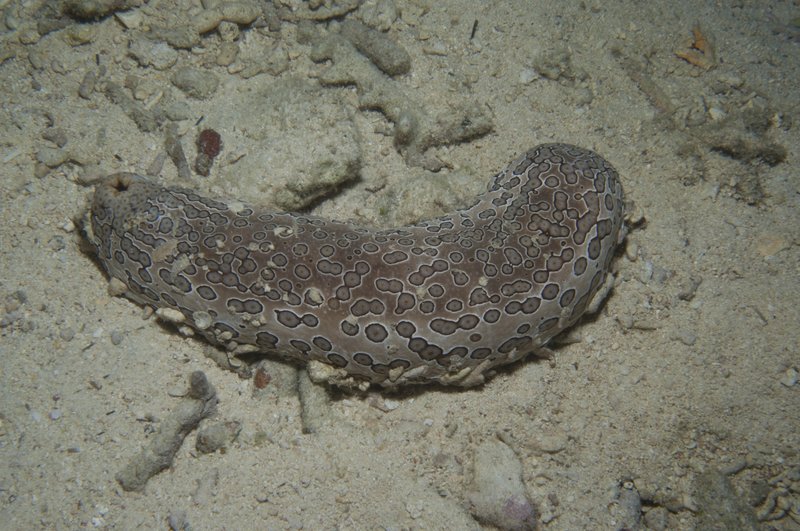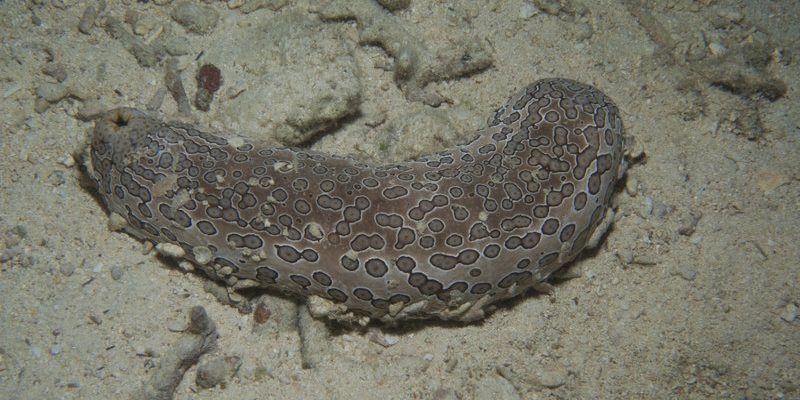
Picture the sea cucumber as the unsung hero of the ocean floor. They munch on decaying organic matter, helping clean up the ocean and recycle nutrients. Think of them as nature’s clean-up crew. However, as our planet warms and our oceans change, these tubular creatures are feeling the heat—literally and figuratively. Rising temperatures, ocean acidification, and habitat loss are just a few ways climate change is putting pressure on sea cucumbers. So, let’s take a closer look at what’s going on and why it matters.
The Basics of Sea Cucumbers and Their Role in the Ecosystem
Sea cucumbers are fascinating marine animals that belong to the echinoderm family, which also includes starfish and sea urchins. They have a distinct elongated body that resembles the shape of a cucumber, hence the name. Found in a variety of ocean environments—from shallow reefs to deep-sea habitats—sea cucumbers play a crucial role in maintaining healthy ecosystems.
Here’s the thing: these creatures aren’t just hanging around for their good looks. They feed on detritus—tiny bits of organic material that sink to the ocean floor. As they eat, they break it down and recycle nutrients back into the ecosystem, making them essential for supporting marine life. Without them, the ocean would be a lot messier, and many other creatures would struggle to survive.
When you think about how interconnected the ocean is, it’s clear that losing or harming sea cucumbers can set off a chain reaction that affects everything else in the ecosystem. So, understanding their role helps us appreciate why it’s so important to pay attention to the changes they’re facing.
The Impact of Rising Ocean Temperatures
One major way climate change is affecting sea cucumbers is through rising ocean temperatures. This is like turning up the thermostat in your home; it might feel nice at first, but after a while, things start to get uncomfortable. For sea cucumbers, warmer waters can disrupt their metabolism and reproduction.
When ocean temperatures rise, sea cucumbers may struggle to find the right conditions for growth. Warmer waters can lead to an increase in harmful algal blooms, which can produce toxins that are detrimental to their health. Moreover, if temperatures exceed certain thresholds, it can lead to stress or even death for these organisms. Imagine trying to work out on a hot summer day—you’d be exhausted and less efficient, right? That’s what sea cucumbers are going through when the ocean heats up.
Ocean Acidification: A Hidden Threat
Alongside rising temperatures, ocean acidification is another significant challenge for sea cucumbers. This occurs when the ocean absorbs excess carbon dioxide from the atmosphere, resulting in a lower pH level. It’s like turning your soft drink into a sour mix—unpleasant and potentially harmful.
For sea cucumbers, higher acidity levels can interfere with their ability to grow and maintain their protective shells. This is particularly concerning since many sea cucumbers rely on their outer layer to shield themselves from predators and environmental stressors. It’s a bit like living in a house with thin walls; you’d feel vulnerable and exposed.
Additionally, ocean acidification can affect the availability of calcium, which is crucial for many marine organisms to build and maintain their structures. If sea cucumbers can’t find enough calcium, it can lead to weaker bodies and reduced survival rates.
Habitat Loss and Overfishing
As climate change continues to impact ocean habitats, sea cucumbers are also facing the threat of habitat loss. Coastal development, pollution, and overfishing are all human activities that contribute to this problem. Think of it as putting up walls in a city that restrict movement and access to resources.
Loss of habitats such as mangroves and seagrasses means that sea cucumbers have fewer places to hide from predators and fewer nutrients. Plus, if their natural habitats are degraded, it could make it harder for them to thrive. When the spaces they need to survive are compromised, it increases their vulnerability to disease and environmental changes.
Moreover, overfishing of sea cucumbers for food and trade has skyrocketed in recent years. These creatures are considered delicacies in many cultures, especially in Asian cuisine. Sadly, this high demand means that many sea cucumber populations are declining faster than they can recover. It’s essential to understand that sustainable practices must be implemented to ensure their survival.
Adaptation and Resilience: Can Sea Cucumbers Bounce Back?
You might be wondering if sea cucumbers can adapt to these changes. Nature has a remarkable way of bouncing back, but it isn’t always so simple. Some species of sea cucumbers demonstrate impressive resilience; they can adjust to changes in temperature and acidity to a certain extent. It’s like how some people can tolerate spicy food better than others—they have built a resistance.
However, the speed at which climate change is occurring might outpace the ability of sea cucumbers to adapt. For instance, if ocean temperatures continue to rise dramatically, it could push some species beyond their survival limits. Additionally, with habitat loss and overfishing compounding the threat, many populations may not recover as swiftly as they need to.
Conservation efforts and responsible fishing practices are crucial to give these creatures the best chance of not just surviving but thriving in changing seas. It requires a collective effort—like teamwork in achieving a common goal.
Why Protecting Sea Cucumbers Matters
You might be asking, “Why should I care about sea cucumbers?” Well, protecting them is about more than just saving one species. It’s about maintaining the balance in our oceans. Sea cucumbers support the health of marine ecosystems, which, in turn, impacts everything from fish populations to coral reefs.
If sea cucumber populations continue to dwindle, it could lead to a knock-on effect that disrupts entire food webs. Healthy oceans are essential for human well-being too. They provide us with food, air, and even climate regulation.
So, when we protect sea cucumbers, we’re ultimately protecting ourselves and future generations. It’s a ripple effect of goodness that starts with understanding the importance of these creatures in our underwater ecosystems.
How You Can Help
Feeling inspired to make a difference? There are several ways you can contribute to the health of sea cucumbers and their habitats:
- Support sustainable seafood: When you buy seafood, look for certified sustainable options to avoid contributing to overfishing.
- Reduce your carbon footprint: Taking steps to lower your carbon emissions can help combat climate change and its impact on the ocean.
- Participate in clean-up efforts: Join local beach clean-ups to help keep coastal habitats clean and healthy.
- Educate others: Spread the word about sea cucumbers and the challenges they face to raise awareness in your community.
Every small action counts, and when we come together, we can create significant change.
In conclusion, sea cucumbers may seem like simple, squishy creatures, but they play a critical role in the health of our oceans. As climate change continues to affect their lives, it’s crucial to understand how we can protect them and the ecosystems they support. Let’s be champions of the sea cucumber, ensuring that our oceans remain vibrant and teeming with life for generations to come.

